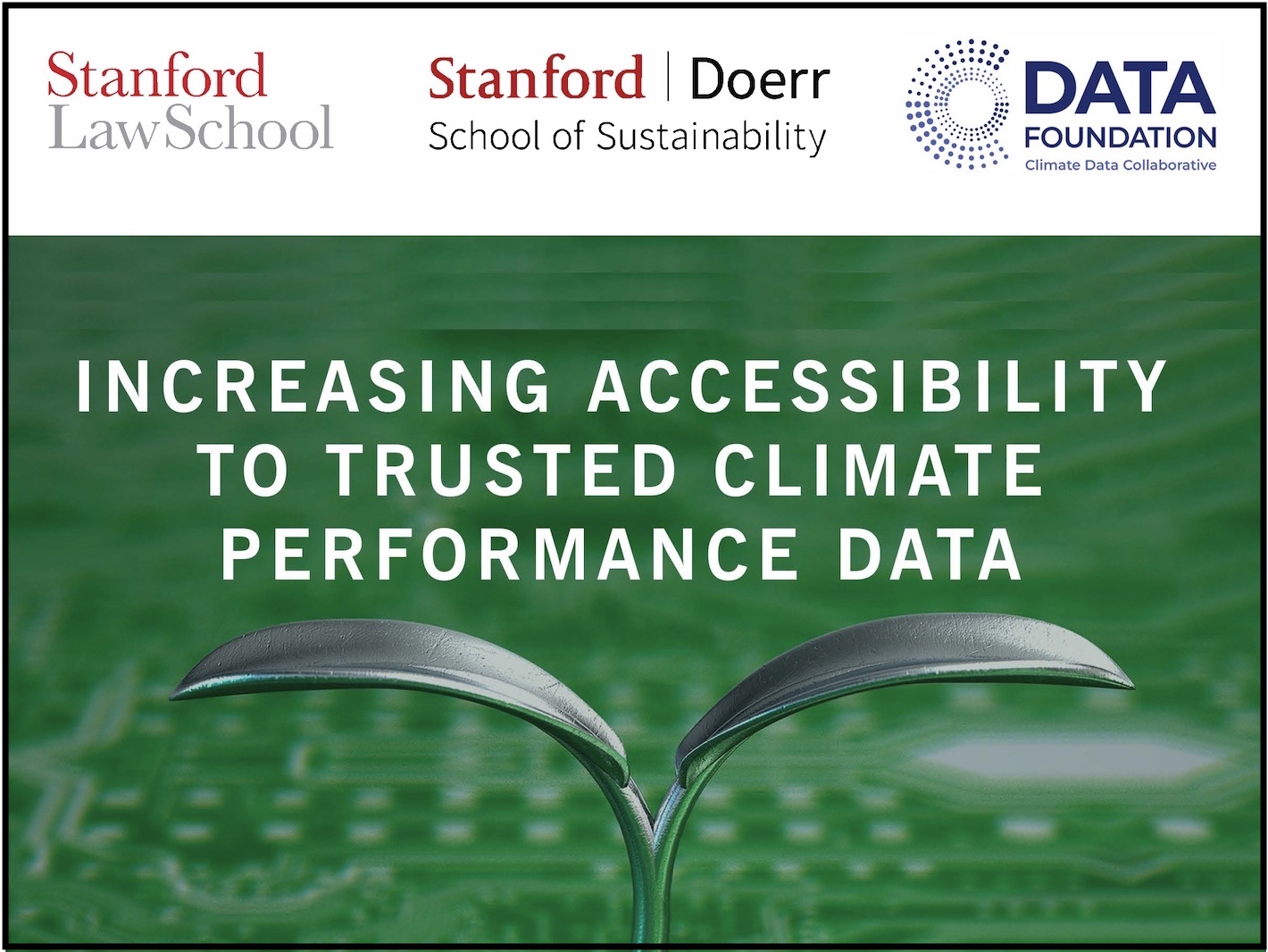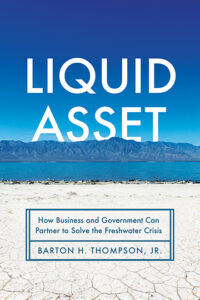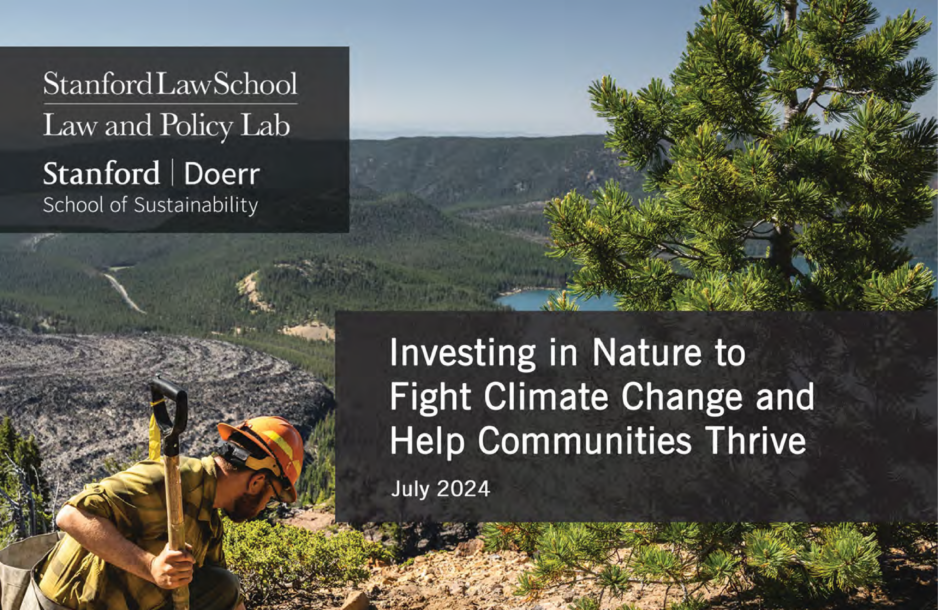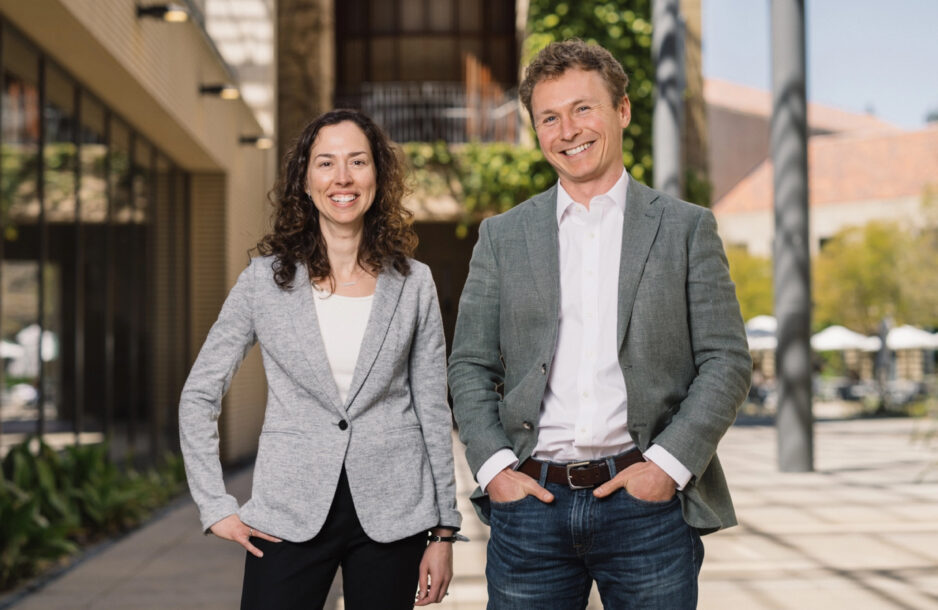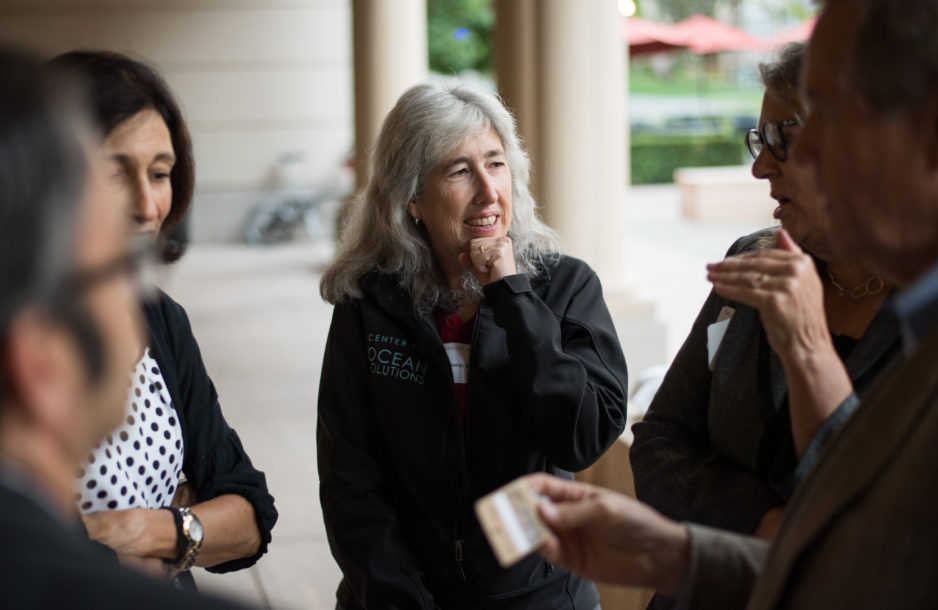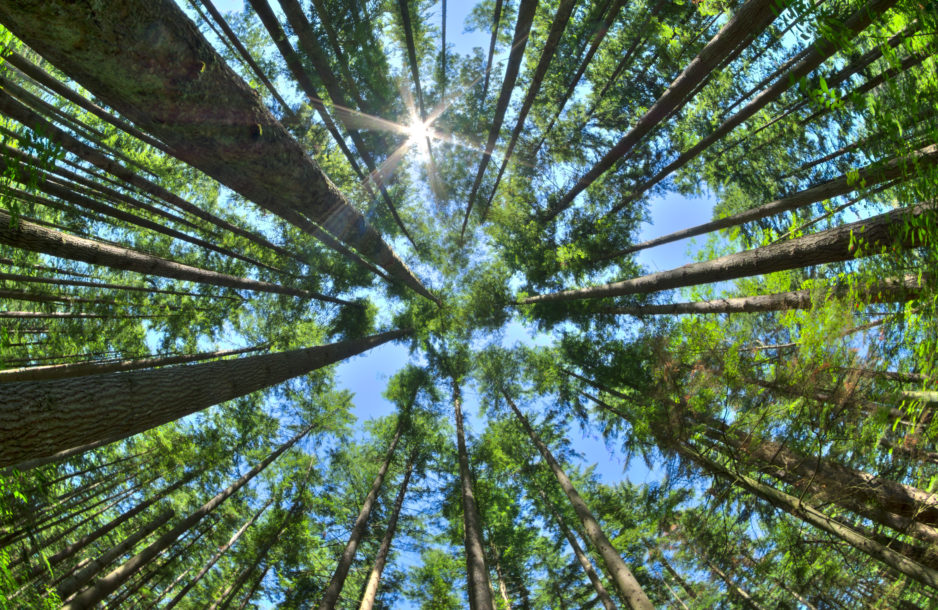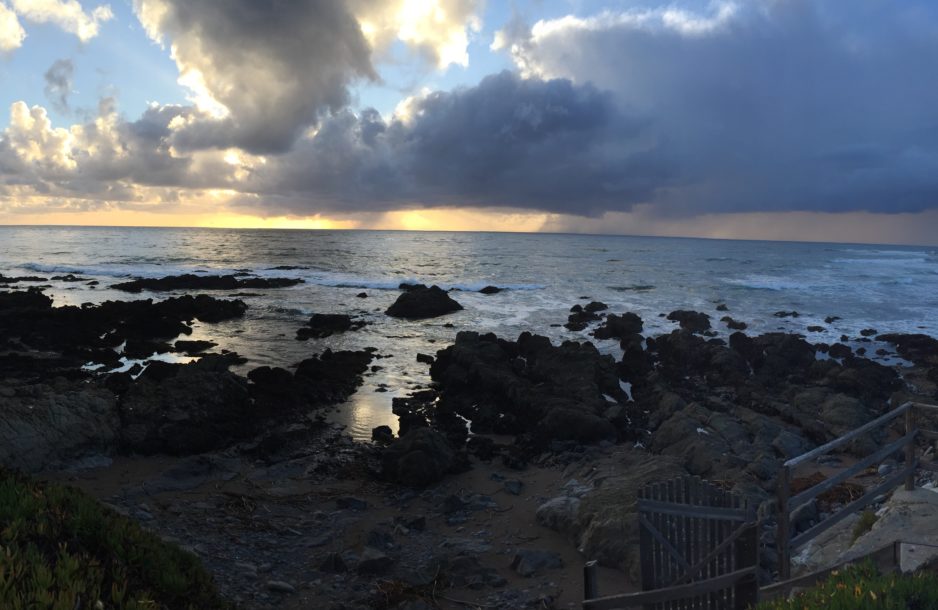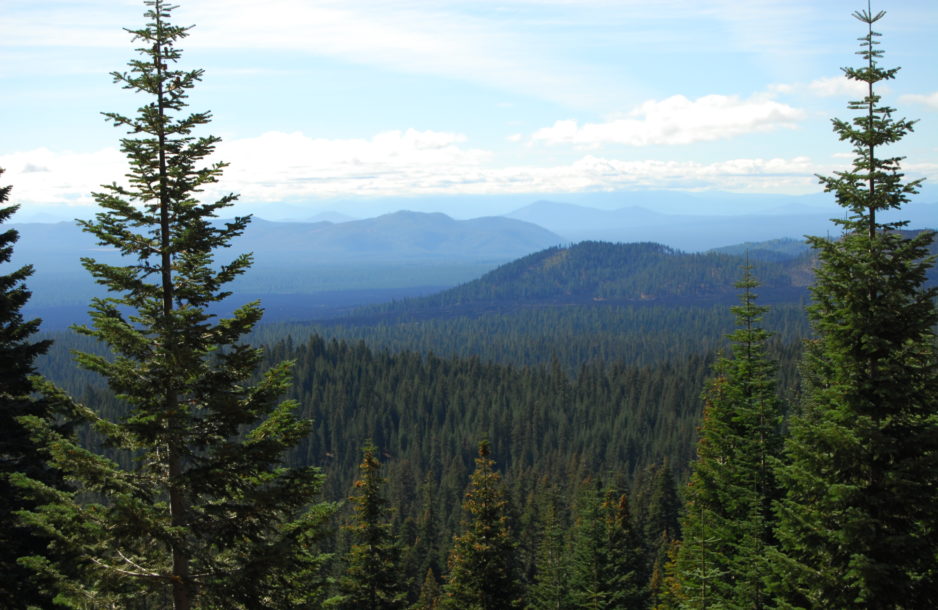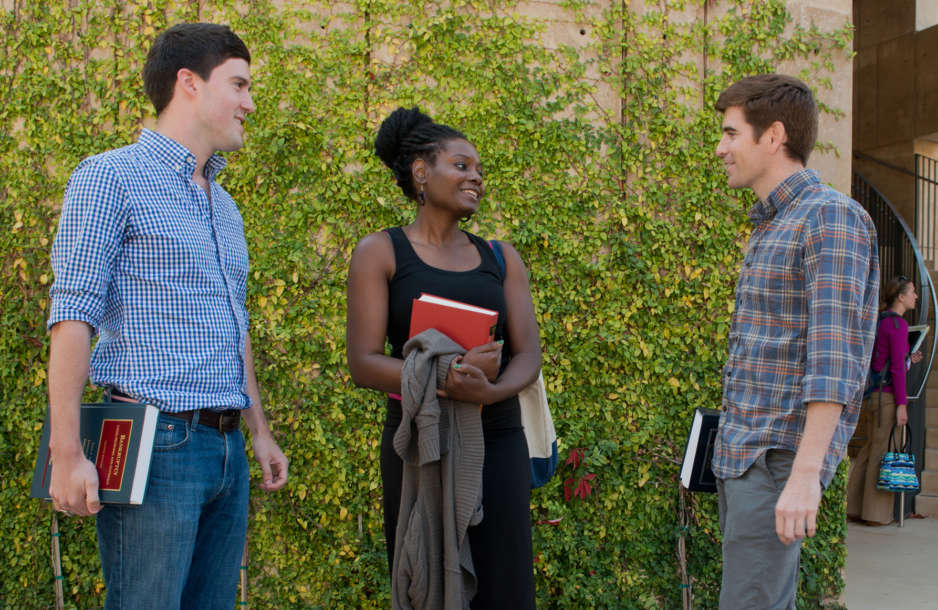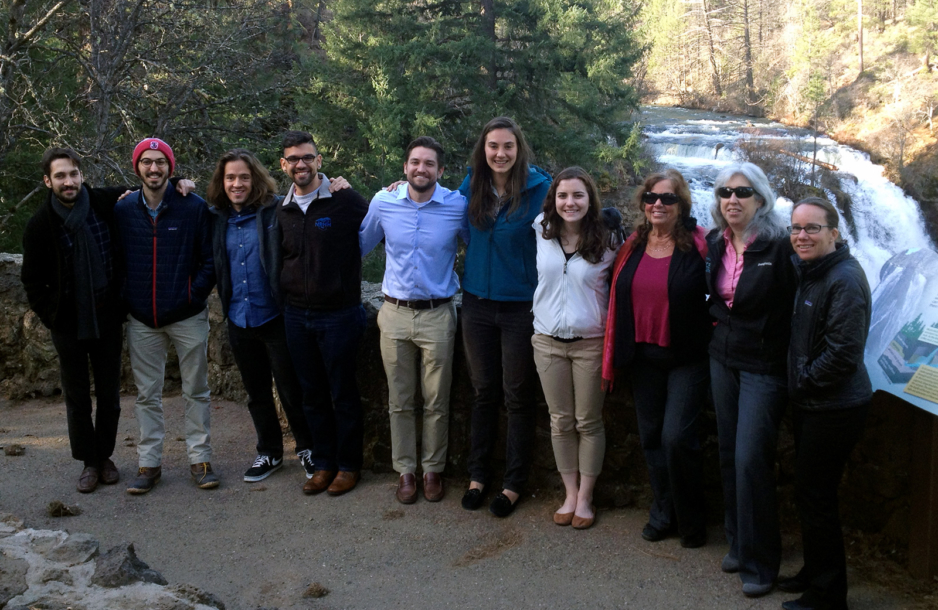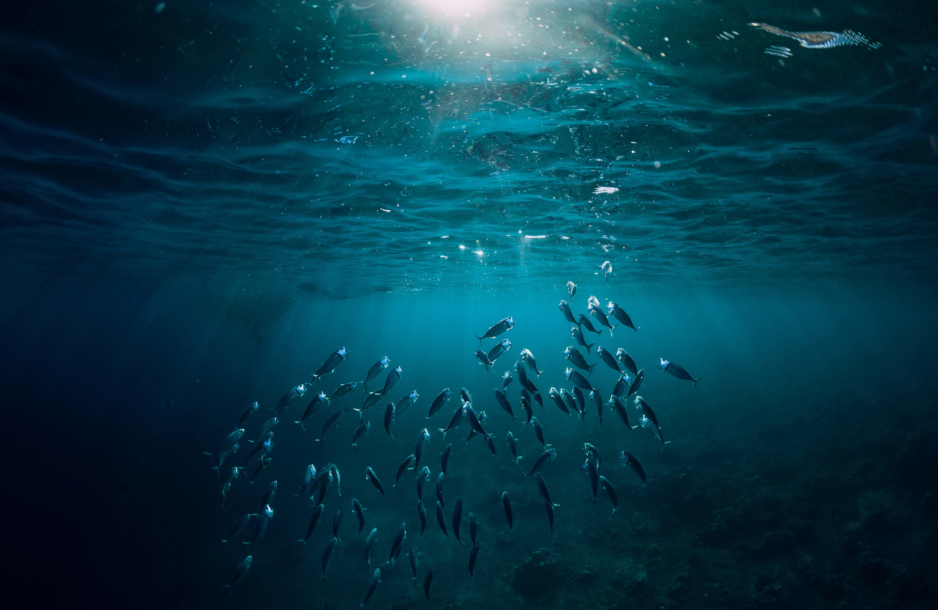Environmental and Natural Resources Law & Policy Program
Uniquely situated in the heart of Silicon Valley and part of one of the world’s preeminent research universities, Stanford’s award-winning Environmental and Natural Resources Law & Policy Program (ENRLP) has earned its reputation as a leading program for education and research in this dynamic field. Indeed, with a nationally renowned faculty praised for its cutting-edge research and practice, the program has revolutionized environmental education.
Our students develop their skills in analyzing and solving problems through situational case studies, learn effective teamwork through Stanford’s Environmental Law Clinic, and master mediation and multiparty negotiation techniques through in-class simulations. Our clinical programs and courses foster collaborative solutions to real-world problems. Many of our courses involve other Stanford departments, and all integrate multidisciplinary materials. The program also provides access to a broad spectrum of practitioners, regulators, and academics in Silicon Valley and beyond, and to hands-on involvement in research, environmental advocacy, and collaborative dialogues. Beyond the classroom, our students pursue a wide array of extracurricular activities, such as membership in the Stanford Environmental Law Journal and the Environmental Law Society.
Stanford Law School graduates pursue a variety of distinguished careers in environmental and natural resources law. Our alumni currently hold positions—covering the spectrum from staff attorney to executive leadership—at national environmental organizations, federal and state agencies, the White House, major corporations, law firms with strong environmental practices, and academia.
Check out our exciting courses in the 2025–2026 academic year!

Fall 2025 Newsletter
The fall quarter is well underway, and Stanford scholars continue to drive their efforts forward on wildfire and energy policy, sustainable food systems, climate data, and market-based approaches to water conservation. Read more in our Fall 2025 newsletter!
Read the Fall Newsletter here : Fall 2025 NewsletterNew water market model to restore ecosystems and water security in the Colorado River basin
In June, Philip Womble (a graduate of both Stanford Law School and the Stanford Emmett Interdisciplinary Program in Environment and Resources, who is now Assistant Professor at the University of Washington Evans School of Public Policy and Governance), along with Professor Buzz Thompson and Stanford hydrologist Steve Gorelick, published an article in Nature Sustainability setting out a new water market model for the Colorado River basin that could improve water security and restore ecosystems amid intensifying shortages. As the authors show, a market-based approach to managing water in the Colorado River basin could provide more reliable supplies for farmers, communities, and industry amid ongoing drought and excess demand. The right market design and a little extra investment could also help threatened fish species. The study details a new system for leasing rights to water from the basin while reallocating some water to imperiled habitats.
Read the full paper : New water market model to restore ecosystems and water security in the Colorado River basin

New Environmental Faculty: Matt Sanders named Co-Director of the Environmental Law Clinic
Matthew J. Sanders, JD ’02, has recently joined the faculty as an assistant professor of law. The appointment marks a new chapter in Sanders’s enduring connection to Stanford Law School, where he began his legal career as a student, returned as a lecturer, and most recently served as acting deputy director of the school’s Environmental Law Clinic.
In his new role, Sanders will co-lead the clinic alongside Deborah Sivas, the Luke W. Cole Professor of Environmental Law, and will continue teaching environmental law and advanced legal writing classes.
Read More Here! : New Environmental Faculty: Matt Sanders named Co-Director of the Environmental Law Clinic2025 Bright Award Winner
Emilie Reuchlin
Marine biologist, co-founder and director of the Doggerland Foundation (the Netherlands)
In recognition of her advocacy for the North Sea, Emilie Reuchlin was selected as the 2025 winner of the Bright Award for Environmental Sustainability.
Reuchlin is a longtime advocate for the North Sea, most recently through the Doggerland Foundation, which she co-founded to restore biodiversity in the North Sea region, especially the Dogger Bank, a nutrient-rich submerged sandbank called “the ecological heart of the North Sea.” This vital habitat and marine life spawning ground lies at the center of one of Europe’s most industrialized and overexploited marine regions.
For Reuchlin, reimagining humans’ relationship with the natural world means more than preserving what’s left – it means actively restoring what’s been lost, holding governments accountable to the laws they’ve made, and ensuring that the “voices of ecosystems” are considered in the decisions that shape their future.
“The North Sea has been treated like an industrial wasteland,” Reuchlin says. “We’re supposed to have protections, but in reality, we’ve been fighting for years just to enforce the bare minimum.”

Increasing Accessibility to Trusted Climate Performance Data
Without fanfare, U.S. companies, financiers, and entrepreneurs are continuing to make substantial investments in reducing emissions of carbon, methane, and other greenhouse gases (GHGs) and, in a growing trend, in direct removals of carbon dioxide from the atmosphere. In April 2025, for example, the X Prize Carbon Removal competition doled out $100 million in the largest global incentive competition award in history.
While many clean energy investments will continue to scale, a single market failure—the lack of investor-grade performance metrics—threatens to hold back investments in three of the most promising opportunity areas for GHG emissions reductions and removals: methane emissions reductions; hybrid (or engineered) CDR solutions; and forest carbon interventions.
The Stanford Law & Policy Lab report describes how poor performance accounting standards are the soft underbelly that is afflicting each of these sectors. In all three cases, there is no general agreement on protocols that should be used to measure and confirm GHG reductions and removals, nor is there a system for transparently sharing performance results that will trigger additional investment.
This lack of GHG performance accounting can and must be fixed. The Stanford report reviews how leaders in other fields have come together to identify and incentivize the use of modern data management tools to pool together shared, trusted performance information that data users of all types can rely upon. The report provides recommendations for how key stakeholders in each of the three sectors highlighted in the report can—with the assistance of expert convenors and university consortia—leverage and expand nascent standard-setting and data collection and sharing initiatives to generate accessible, trusted GHG performance data, triggering increased investment in activities that will reduce methane emissions, scale CDR solutions, and increase carbon uptake in forests (and other nature-based solutions). The report also highlights GHG performance data gains that can be made in the urban context, building on foundational work undertaken by Crosswalk Labs and the Data Foundation.
Stanford Environmental Law Clinic and Program Blogs

Controlling H5N1 in California Dairies: Student Policy Practicum Findings
Edited by Avery Bick and Jordan Stock Original Report by Astrid Elliott, Chloe Haydel Brown, Coleman Sherry, Jordan Stock California has over 1.7 million dairy cows and, as the top milk production state, produces twenty percent of the Nation’s milk. Ninety percent of California’s cows are raised in close-quarters on…
Read More : Controlling H5N1 in California Dairies: Student Policy Practicum FindingsThe Laws That Hold Utilities Liable for Wildfires are Changing
The Future of Petroleum Refining in California Is Not More Oil Drilling
ELC Takes On Oil and Plastic Production In Court: Student Attorneys Shine in Three Oral Arguments
Is the National Environmental Policy Act About to Be Dramatically Transformed?
Stanford’s Deborah Sivas on SCOTUS’ Overruling of the Chevron Doctrine
Stanford's Buzz Thompson Publishes Book on Business-Government Partnerships and the Water Crisis
Stanford’s Buzz Thompson has published a new book, Liquid Asset: How Business and Government Can Partner to Solve the Freshwater Crisis. The book centers on how water managers and the private sector can collaborate to address water shortages and water sustainability.
Expanding on Thompson’s provocative book, Stanford Law School convened leading water-law scholars for a lively discussion of the major freshwater challenges facing the United States and the world and what role, if any, the private sector can play in solving those challenges. The Stanford Environmental Law Journal will be publishing essays from the workshop.
For more analysis and solutions to the freshwater crisis from Liquid Asset, listen here, or check out The Environmental Forum review on Thompson’s book here.
Read More : Stanford's Buzz Thompson Publishes Book on Business-Government Partnerships and the Water CrisisRecent Work
Recent Press by the ENRLP Team
Trump’s face on national parks pass is illegal, experts say
SFGate
Matthew Sanders, an environmental law scholar at Stanford Law School, agreed that the changes are “legally questionable,” although the government will likely have arguments to support the move, he said. For example, the rules of the annual contest state that a winning photo “may be featured” on the annual pass,…
Read More : Trump’s face on national parks pass is illegal, experts sayAn Oil Company Running Into Rough Waters off the California Coast Is Looking to Trump for Help
Environmental review bill would sharply restrict public challenges to federal projects
Why fast-tracking oil drilling in California won’t lower prices at the pump
Dutch Advocate for the North Sea Selected for Stanford University’s 2025 Bright Award
Stanford Environmental News
Looking for more stories about the environment, energy and sustainability? Check out the latest news from some of Stanford's many environmental institutes and centers!

